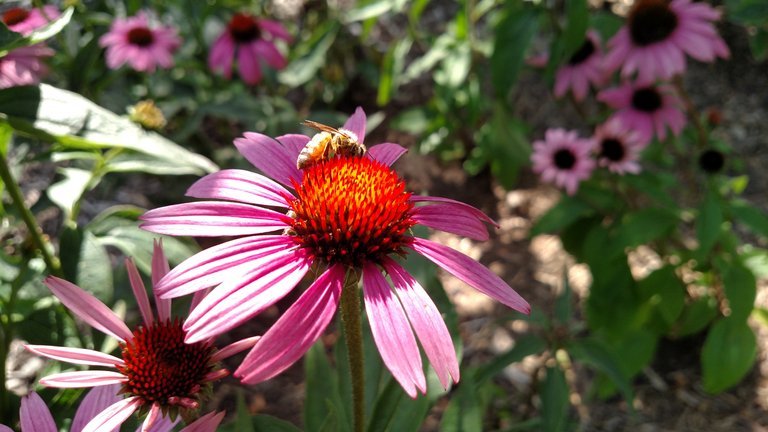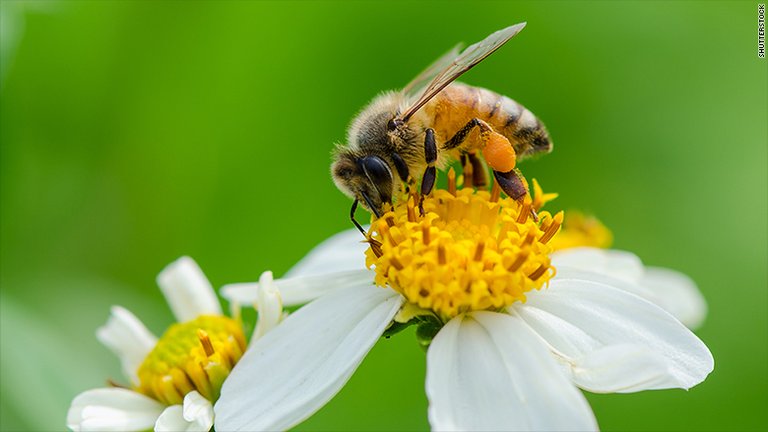In the last decade, The United States has lost forty percent of commercial honeybees. The United Kingdom has seen a loss of forty five percent, while all of Europe has seen a loss of twenty five percent. Bees, besides making honey have an important role in the cycle of life. Bees are a major contributor of crop and flower pollination. Because of how efficient bees are at pollination, they provide one third of the food humans consume. If this decrease continues there will be a shortage of foods in the future.

Since the late 1990’s, bees have been steadily decreasing in population. The reason bees have been decreasing rapidly is because of industrial agriculture, climate change, parasites, and diseases. Industrial agriculture is the most substantial contributor because of the insecticides that are used. The idea of insecticides is to kill, harm, or repel an insect from a crop. Not only do insecticides kill insects, they destroy insect eggs and larvae. Croplands and pastures account for thirty five percent of ice-free land surface, so if insects are not present to pollinate these crops, there will be a decrease in the production of food.

A big problem also arises when bees are not killed by insecticides. Some insecticides instead of initially killing the bee weaken their immune system. This puts the bee at a higher risk of contracting diseases and parasites. Infected bees can carry disease and parasites into their colonies making a large group sterile. Pathogens and parasites slowly destroy colonies.

However, insecticides are not the only contributor in the global decline of pollinators. According to Greenpeace, a non-governmental, environmental organization, “The global bee-decline is just a symptom of a failed industrial agricultural system based in ever increasing chemical and energy inputs, large-scale monoculture and dependency from a few multinational agriculture companies. Growing pest and weed resistance, decreasing soil fertility, widespread water contamination, increasing carbon dioxide emissions and vulnerability to climate change, as well as a systemic loss of resilience, diversity and sovereignty in the global food production press us to make the transformational change towards biodiversity based ecological farming systems.”

To save the bees and other pollinators, there must be an immediate stop to powerful insecticides, and industrial agriculture. According to experts, the type of farming that needs to become more abundant is ecological farming so that it ensures the method in which we farm is healthy not only for pollinators, but for the Earth and society.
References:
Greenpeace, The Bees in Decline; The risks for agriculture in Europe. http://sos-bees.org/ Accessed, April 26, 2018.
Arjun Walia, Collective evolution, New Harvard Study Proves why the Bees are all Disappearing. http://www.collective-evolution.com/2014/05/15/new-harvard-study-proves-why-the-bees-are-all-disappearing/ Accessed April 26, 2018.
Earth Talk, why are Honeybees Disappearing? https://www.thoughtco.com/why-honeybees-are-disappearing-1203584. Accessed April 27, 2018